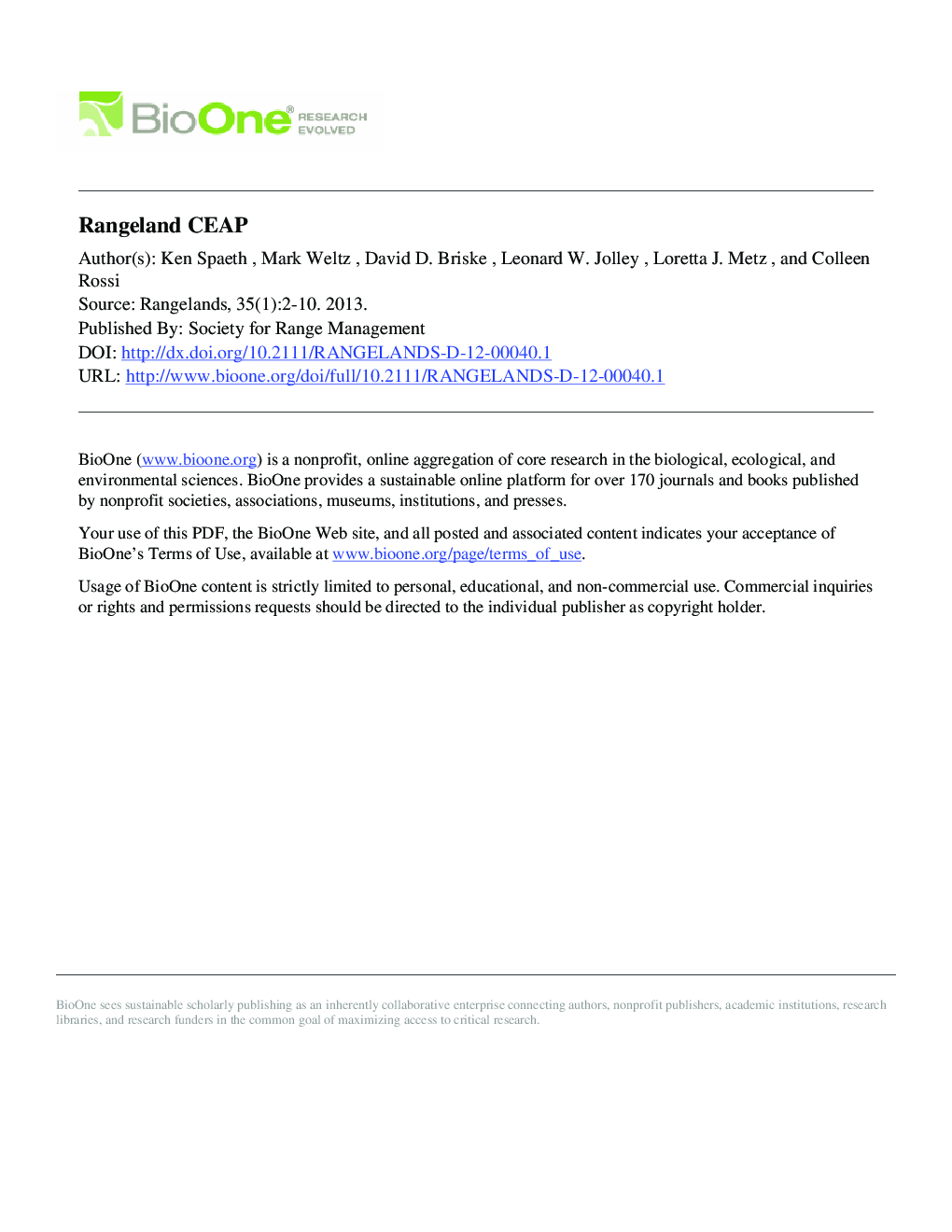| Article ID | Journal | Published Year | Pages | File Type |
|---|---|---|---|---|
| 4405210 | Rangelands | 2013 | 10 Pages |
Abstract
On the Ground
- The Conservation Effects Assessment Project (CEAP) is a multi-agency effort to quantify the environmental effects of conservation practices and programs and develop the science base for managing the agricultural landscape for environmental quality.
- The rangeland CEAP review evaluated the scientific literature on seven core NRCS conservation practices: prescribed grazing, prescribed burning, brush management, range planting, riparian herbaceous cover, upland wildlife habitat management, and herbaceous weed control.
- The scientific literature “broadly supports” the reviewed rangeland conservation practices standards; however, there is a disjunct in integrating science and field-based knowledge so that managers and conservationists can fully understand the individualistic dynamic aspects of rangeland conservation practices.
- The CEAP synthesis establishes a precedent for partnerships among scientists, land managers, conservation specialists, and policymakers to provide NRCS with useful, current, science-based information for rangeland conservation practices.
- The Conservation Effects Assessment Project (CEAP) is a multi-agency effort to quantify the environmental effects of conservation practices and programs and develop the science base for managing the agricultural landscape for environmental quality.
- The rangeland CEAP review evaluated the scientific literature on seven core NRCS conservation practices: prescribed grazing, prescribed burning, brush management, range planting, riparian herbaceous cover, upland wildlife habitat management, and herbaceous weed control.
- The scientific literature “broadly supports” the reviewed rangeland conservation practices standards; however, there is a disjunct in integrating science and field-based knowledge so that managers and conservationists can fully understand the individualistic dynamic aspects of rangeland conservation practices.
- The CEAP synthesis establishes a precedent for partnerships among scientists, land managers, conservation specialists, and policymakers to provide NRCS with useful, current, science-based information for rangeland conservation practices.
Related Topics
Life Sciences
Agricultural and Biological Sciences
Agricultural and Biological Sciences (General)
Authors
Ken Spaeth, Mark Weltz, David D. Briske, Leonard W. Jolley, Loretta J. Metz, Colleen Rossi,
